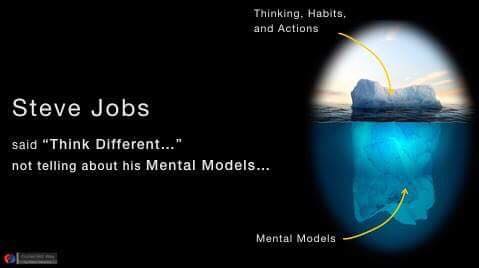 One of the great things about the LifterLMS community is that I get to connect with a bunch of intelligent and impactful education entrepreneurs in all kinds of interesting niches.
One of the great things about the LifterLMS community is that I get to connect with a bunch of intelligent and impactful education entrepreneurs in all kinds of interesting niches.
One of those is PeterFallenius. Peter is pictured here from his earlier days as a competitive running athlete.
You might remember an interview I conducted with Peter about elite learning environments on the LMScast podcast.
Peter was an early adopter of LifterLMS, and over the years I’ve learned a tremendous amount from him.
When I first met Peter, I had no idea he and his methods would have such a huge impact on my business and life in general.
Peter opened my eyes to how outliers operate in 3 key ways so far…
1) Understanding the Role of Mental Models
Mental models are the lens through which we see and understand the world.
It’s often hard to see or even be aware of our mental models.
They may be fundamentally flawed or not mapped accurately to reality.
Your mental models may be average, great, or outlier.
What makes an outlier mental model?
According to Peter, outlier mental models are simple, extraordinary, results producing on a reliable basis, and are developed based on reality-based feedback.
Understanding outlier mental models has dramatically freed up space in my mind concerning what to focus on, what’s worth pursuing, and what to ignore.
There is a lot of smart chatter in the world, but when I’m choosing what to listen to or what to teach, I am now focused almost exclusively on real-world, repeatable results that are extraordinary.
This creates an incredible amount of room for meaningful work.
Peter created the image below to help illustrate how mental models operate:

2) Redefining What is Meaningful
Peter and I had a conversation about a year ago about something called Self Determination Theory.
Self-determination theory (SDT) is a macro theory of human motivation and personality that concerns people’s inherent growth tendencies and innate psychological needs. SDT identifies three innate needs that, if satisfied, allow optimal function and growth:
- Competence
- Relatedness
- Autonomy
Peter has built on this theory to create a framework for how outliers operate with what he calls “Outlier Core Skills”:
- Learning
- Leadership
- Team
As someone who is deeply interested in learning, Peter’s work on “Outlier Learning” is fascinating to me.
After learning from Peter about these Outlier Core Skills, I now have a filter to run just about any decision or “What should I do next?” type of situation through.
As situations and opportunities arise, I ask myself, “Will this in some way contribute to Learning, Leadership, or Team?”
3) Developing Outlier Qualities and Results are Teachable
One of the most interesting and boldest claims by Peter is that becoming an outlier is not only teachable, it is possible to develop outlier results in ALL areas of life.
Some people create outlier results by luck or accident.
Others repeatedly create outlier results, even if they are unaware of how they do it. This rules out the luck or randomness factor.
But Peter claims that not only can you create repeatable outlier results with full awareness of what you’re doing, you can do it in many different contexts like:
- Business and Startups
- Relationships
- Health and Fitness
- Strategy
Would You Like to Explore Your Outlier Potential?
I’ve personally and professionally learned a lot from Peter and his Outlier 360 Way. It’s had some very significant positive impacts on my business and life.
If you’d like to join me on the journey exploring Peter’s work and the Outlier 360 Way, click here.






